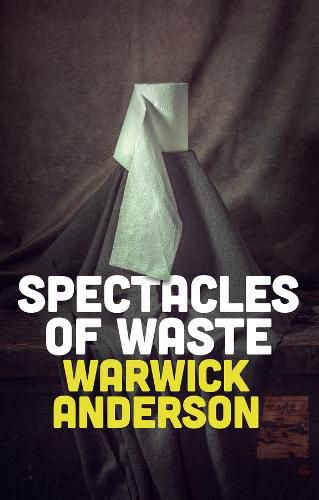Readings Newsletter
Become a Readings Member to make your shopping experience even easier.
Sign in or sign up for free!
You’re not far away from qualifying for FREE standard shipping within Australia
You’ve qualified for FREE standard shipping within Australia
The cart is loading…






The modern bathroom is an ingenious compilation of locked doors, smooth porcelain, 4-ply tissue and antibacterial hand soap, but despite this miracle of indoor plumbing, we still can't bear the thought that anyone else should know that our bodies produce waste. Why must we live by the rules of this intense scatological embarrassment?
In Spectacles of Waste, leading historian of medicine Warwick Anderson reveals how human excrement has always complicated humanity's attempts to become modern. From wastewater epidemiology and sewage snooping to fecal transplants and excremental art, he argues that our insistence on separating ourselves from our bodily waste has fundamentally shaped our philosophies, social theories, literature and art-even the emergence of high-tech science as we understand it today.
Written with verve and aplomb, Anderson's expert analysis reveals how in recent years, humanity has doubled down on abstracting and datafying our most abject waste, and unconsciously underlined its biopolitical signature across our lives.
$9.00 standard shipping within Australia
FREE standard shipping within Australia for orders over $100.00
Express & International shipping calculated at checkout
The modern bathroom is an ingenious compilation of locked doors, smooth porcelain, 4-ply tissue and antibacterial hand soap, but despite this miracle of indoor plumbing, we still can't bear the thought that anyone else should know that our bodies produce waste. Why must we live by the rules of this intense scatological embarrassment?
In Spectacles of Waste, leading historian of medicine Warwick Anderson reveals how human excrement has always complicated humanity's attempts to become modern. From wastewater epidemiology and sewage snooping to fecal transplants and excremental art, he argues that our insistence on separating ourselves from our bodily waste has fundamentally shaped our philosophies, social theories, literature and art-even the emergence of high-tech science as we understand it today.
Written with verve and aplomb, Anderson's expert analysis reveals how in recent years, humanity has doubled down on abstracting and datafying our most abject waste, and unconsciously underlined its biopolitical signature across our lives.